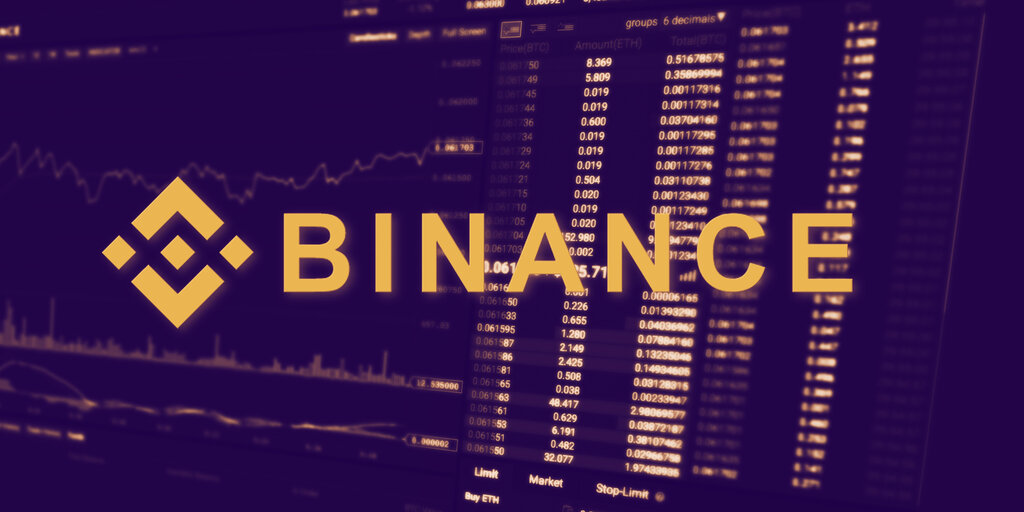
In brief
- Binance Launchpool launched last week.
- It introduces something similar to yield farming, but ostensibly without the risk.
- Its proprietary blockchain, however, is another matter.
Binance’s new yield farming platform has breathed new life into its token, BNB. And it could bring DeFi principles to a wider audience.
Since the launch of Binance Launchpool last Monday, dozens of additional DeFi projects have flocked to the platform, attracting hundreds of millions of dollars of investors’ money. And Binance’s own token, BNB, rose from $19 to $30 in about a week, a 57% increase.
That’s what happens when the world’s largest cryptocurrency exchange (by most conceivable metrics) gets into decentralized finance, the umbrella term that comprises non-custodial financial services, such as lending protocols and synthetic assets. In its endeavor, Binance is taking on Ethereum, the blockchain that currently houses almost all of the top DeFi projects.
How is Binance Launchpool taking on DeFi?
Specifically, Binance Launchpool brings yield farming, a lucrative DeFi mechanic popular on Ethereum, to its website.
Here’s how yield farming works: stake cryptocurrency within a DeFi project’s smart contracts and the protocol will perform some action, like lend it out or use it to fund a liquidity pool. This will generate some interest on your investment, and on top of that you’ll get the smart contract’s native token—that you can sell for a profit.
However, yield farming on Ethereum is…risky. Lots of the smart contracts are unaudited and very new. Yield farming on Binance’s Launchpool, however, takes place on its website. Currently, you can earn $BEL, $WING and $SXP.
“For the millions of retail crypto investors who can’t keep up with the latest developments in DeFi and the risks involved in yield farming, this is a good way to participate in the yield farming craze in a relatively low risk way,” tweeted a researcher from crypto VC fund The Spartan Group.
“Imagine holding an asset that can consistently generate a high yield simply by staking it on Binance. No need to worry about [smart contract] risk, [anonymous] founders, metamask or yield farming strategies.”
Put another way, holding BNB lets Binance’s customers expose themselves to the benefits of DeFi without taking on many of the risks commonly associated with this burgeoning field.
This may explain the BNB price pump: “For $BNB, this creates a constant demand for holding/staking the token, making it an attractive asset to own,” said the Spartan Group.
Pedro Febrero, a researcher at Quantum Economics, told Decrypt he thinks that the token will “pump quite hard over the next few months.” The coin just hit its all-time high, “and I think that level will easily be surpassed once a few more projects launch on Binance,” he said.
Binance Launchpool has attracted DeFi projects onto Binance’s proprietary blockchain, Binance Smart Chain. This is likely to take advantage of the additional BNB usage.
Projects on Binance Smart Chain look…surprisingly similar to those on Ethereum. The memes are the same, for one. Instead of Ethereum’s SushiSwap—a clone of decentralized exchange Uniswap with a yield-farming mechanism attached—Binance Smart Chain has BurgerSwap and BakerySwap. Instead of Ethereum’s top decentralized derivatives exchange, Synthetix, Binance Smart Chain is home to Spartan Protocol.
Febrero said that all of this isn’t going to topple Ethereum. “I personally do not think it is very decentralized in the first place, nor is it a real competitor to Ethereum,” he said.
In fact, “It’s not quite logical to compare Binance to Ethereum at this point,” he said. Binance is a company, centralized as they come, while Ethereum is a decentralized network. And while DeFi on Ethereum is an $8 billion industry, DeFi on Binance is also far smaller; transaction volume on Binance Smart Chain is just 14% of Ethereum. This makes it easier for Binance to control the ecosystem, like choosing which projects to support on Launchpool or fixing bugs.
“Of course, in time this could change and we could definitely see Binance making a move towards decentralization (ie, if their non-custodial and dex platforms take off massively),” he said. But for now, they’re different beasts altogether.
